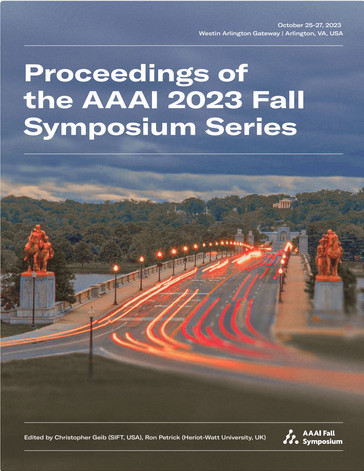Effect of Adapting to Human Preferences on Trust in Human-Robot Teaming
DOI:
https://doi.org/10.1609/aaaiss.v2i1.27642Keywords:
Human-robot Teaming, Adaptability And Trust, Trust-driven InteractionAbstract
We present the effect of adapting to human preferences on trust in a human-robot teaming task. The team performs a task in which the robot acts as an action recommender to the human. It is assumed that the behavior of the human and the robot is based on some reward function they try to optimize. We use a new human trust-behavior model that enables the robot to learn and adapt to the human's preferences in real-time during their interaction using Bayesian Inverse Reinforcement Learning. We present three strategies for the robot to interact with a human: a non-learner strategy, in which the robot assumes that the human's reward function is the same as the robot's, a non-adaptive learner strategy that learns the human's reward function for performance estimation, but still optimizes its own reward function, and an adaptive-learner strategy that learns the human's reward function for performance estimation and also optimizes this learned reward function. Results show that adapting to the human's reward function results in the highest trust in the robot.Downloads
Published
2024-01-22
Issue
Section
Agent teaming in mixed-motive situations

